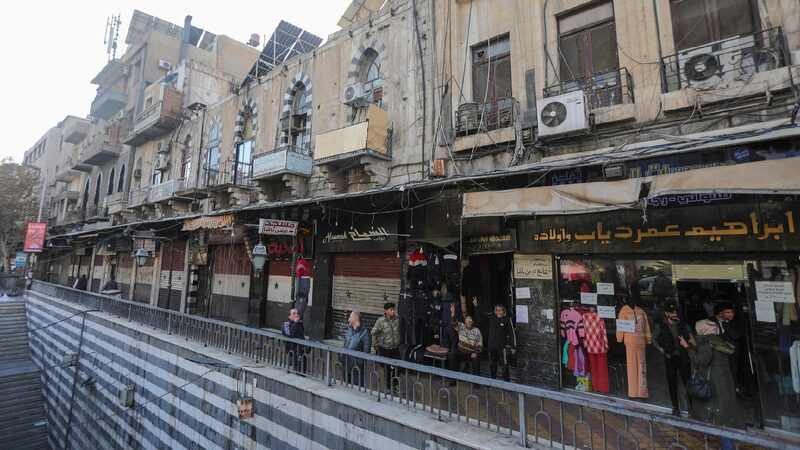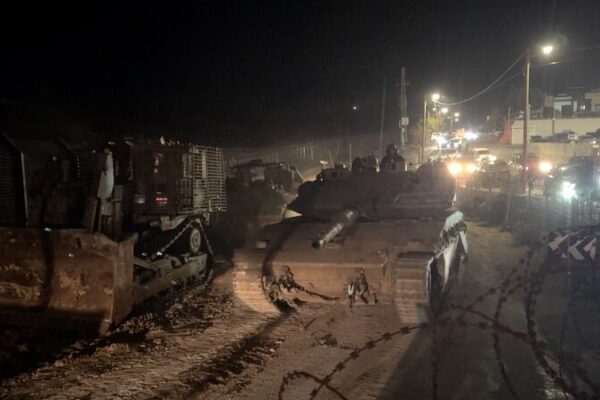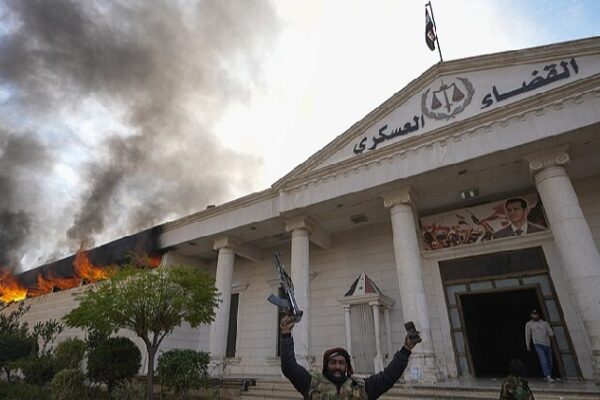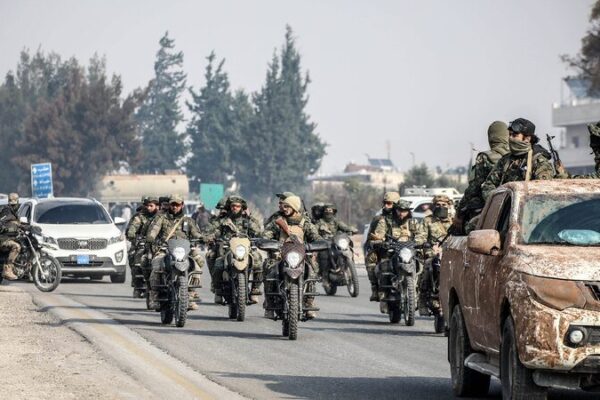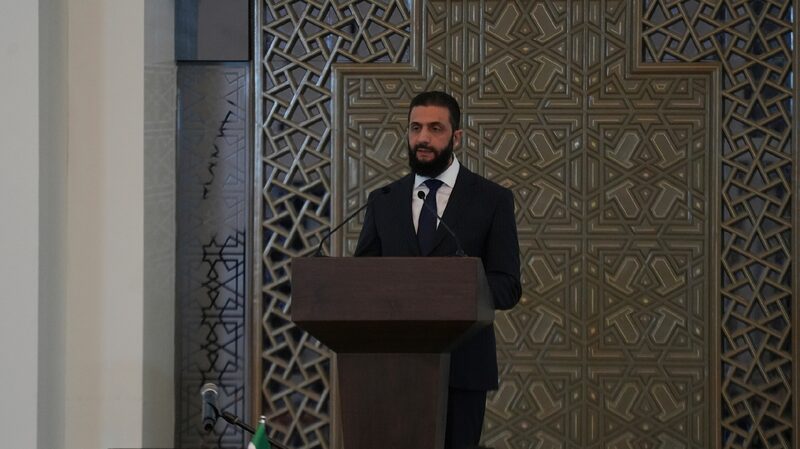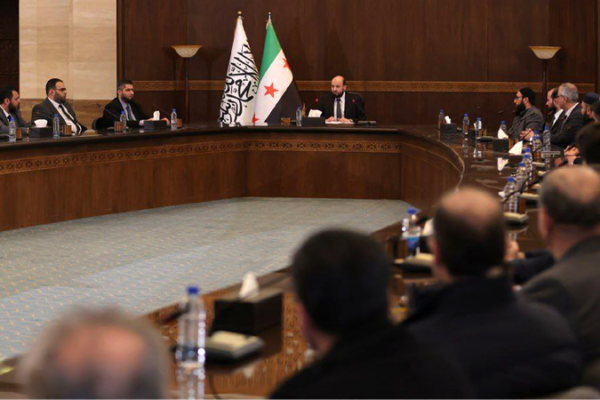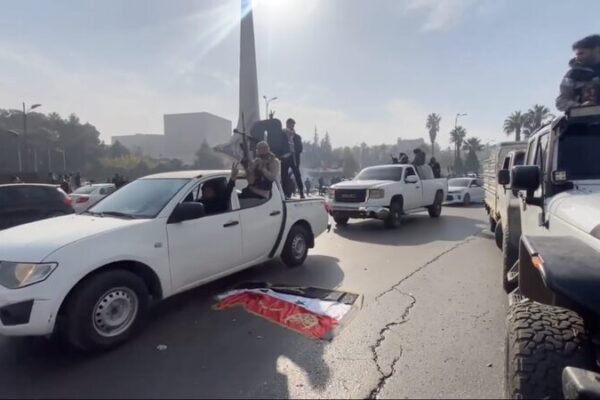Damascus, Syria — Syria is witnessing a significant shift as Islamist rebel leader Ahmed al-Sharaa, formerly known as Abu Mohammed al-Jolani, initiated discussions on Monday to transfer power after the dramatic unseating of President Bashar al-Assad.
Al-Sharaa met with Prime Minister Mohammed al-Jalali to “coordinate a transfer of power that guarantees the provision of services” to the Syrian people, according to statements posted on their social media channels.
The Syrian parliament expressed support for “the will of the people to build a new Syria towards a better future governed by law and justice.” Similarly, the Ba’ath Party endorsed “a transitional phase in Syria aimed at defending the unity of the country.”
Hayat Tahrir al-Sham (HTS), the group led by al-Sharaa, has sought to reshape its image in recent years. While previously linked to extremist activities, HTS has been working to gain broader acceptance both domestically and internationally.
The international community is responding cautiously. Germany and France issued a joint statement expressing readiness to cooperate with Syria’s new leadership “on the basis of fundamental human rights and the protection of ethnic and religious minorities.” U.S. Secretary of State Antony Blinken noted the importance of preventing further fragmentation in Syria, emphasizing efforts to avoid mass migrations and the spread of extremism.
Regional Tensions Rise
Amid the power transition, neighboring countries are adjusting their strategies. Israel, which shares a border with Syria, deployed troops into a buffer zone near the Golan Heights for “security reasons,” according to Israeli Foreign Minister Gideon Saar. Reports indicate multiple airstrikes targeting military capabilities of the former regime.
In response, Lebanon’s Hezbollah condemned the actions, accusing Israel of “occupying more land in the Golan Heights.”
In northern Syria, a Turkish drone strike targeted a Kurdish-held area, resulting in civilian casualties, including children, as reported by monitoring groups.
Humanitarian Concerns
The United Nations expressed deep concern over the escalating situation, describing it as “chaotic and fluid.” With over 16 million Syrians needing assistance and a million displaced in recent weeks, the humanitarian crisis is intensifying.
What Lies Ahead?
As the future of Syria hangs in the balance, governments across the Middle East and beyond are engaging with various factions to find a political solution. The U.S. State Department confirmed ongoing conversations with countries influential in Syria, aiming to stabilize the region.
Experts warn that the swift changes could lead to further risks. “There are rifts not only between Syrian groups but also among external stakeholders like Türkiye, Russia, Iran, and others, each with their own interests,” said Wang Jin, assistant director at the Institute of Middle East Studies at Northwest University.
Niu Xinchun, a professor at Ningxia University’s China-Arab Research Institute, emphasized the desire for a peaceful transition to a united and inclusive government. However, he cautioned about the possibility of civil strife due to power struggles, which could have wider implications, including a new refugee crisis and the spread of extremism.
In anticipation of potential instability, European countries such as Germany, the UK, and Sweden have temporarily halted asylum applications from Syrians, citing concerns over increased migration.
The coming days and weeks will be crucial in determining the path Syria will take and how the international community will respond to these historic developments.
Reference(s):
cgtn.com
